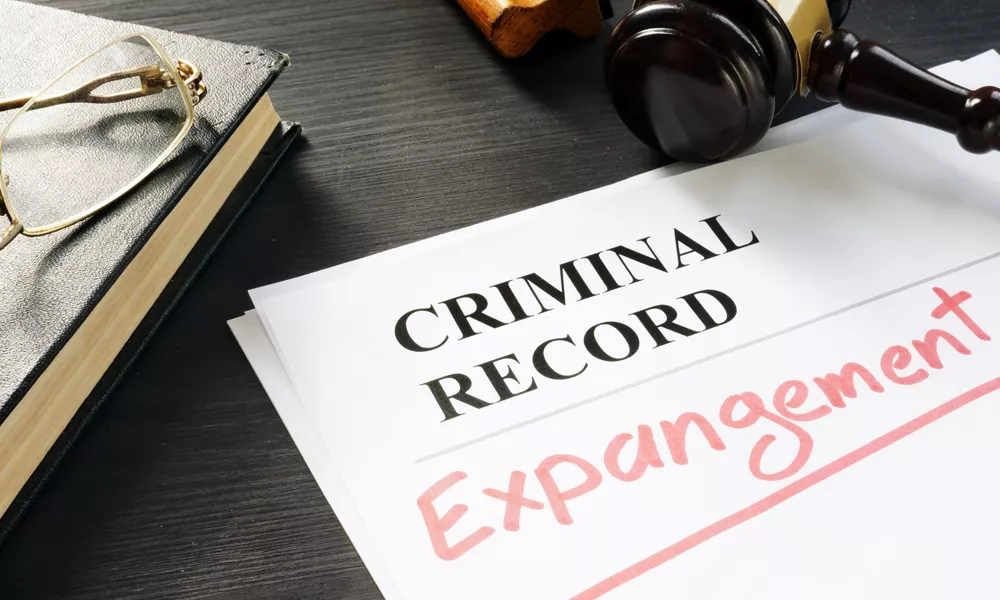An expungement is a court-ordered process that seals or destroys a person’s criminal record. The record is not accessible by the public and the person is treated as if they never committed the crime. In some states, an expungement can also remove the person’s name from public arrest records. The criminal record is not actually destroyed in an expungement. The court merely removes the public’s access to it. The record is still kept by law enforcement and courts, but it is not available to employers, landlords, or other members of the public.
An expungement can have a number of benefits for a person with a criminal record. It can make it easier to find a job or housing because potential employers and landlords will not be able to see the person’s criminal history. An expungement can also help a person get into college or professional school because admissions officials will not be able to see the person’s criminal record. An expungement can also help a person regain their civil rights, such as the right to vote or possess firearms. In some states, an expunged record can still be used against a person in certain situations, such as if they are applying for a job.
How to Prepare for Expungement on Future Arrests:
If you have been arrested and are looking to have the arrest expunged from your record, there are a few things you can do to Prepare. First, you will need to obtain a copy of your Criminal history from the arresting agency or the Court. This will allow you to see what exactly is on your record and what will need to be expunged.
Next, you will need to gather any documentation related to the arrest, such as the police report, booking information, and sentencing paperwork. These documents will be helpful in showing that the arrest should be expunged. Finally, you will need to contact an attorney who specializes in expungement law. They can help guide you through the process and ensure that everything is done correctly.
What Crimes Can Be Expunged?
There are a number of crimes that can be Expunged, or erased, from an individual’s Criminal record. Typically, these are nonviolent crimes that did not result in any harm to another person. However, the specific crimes that can be expunged vary by state. Some common examples of expungable offenses include certain drug crimes, petty theft, and minor assault.
In order to have a crime expunged, an individual must usually petition the court where they were convicted. If the court approves the request, it will then issue an order to erase the offense from the individual’s criminal record. Not all courts will grant requests for expungement, however, so it is important to check with the court where you were convicted before assuming that your offense can be removed.
Additionally, even if a crime is eligible for expungement, there may be other requirements that must be met before the process can be completed. For example, some states may require individuals to wait a certain amount of time after their conviction before they can file for expungement.
The Difference Between Expungement and Sealing Records:
If you have a criminal record, it can show up on background checks and make it difficult to get a job or housing. But in some states, you may be able to get your record “expunged” or “sealed.” This means that the record will not show up on most background checks.
The process for expunging or sealing a record is different in each state, and there are different rules for which kinds of records can be expunged or sealed. In general, however, expungement is harder to get than sealing. And even if you do get your record expunged or sealed, there are still some situations where it can show up. So what’s the difference between expungement and sealing? Expungement is a court-ordered process that completely removes a criminal record from state databases. Sealing, on the other hand, just hides the record from most public view.
Sealing is usually easier to get than expungement, but it doesn’t completely remove the record. That’s why it’s important to understand the difference between these two types of procedures before deciding which one to pursue.
The Benefits and Limitations of Expungement:
The debate surrounding the benefits and limitations of expungement is heated and ongoing. Proponents of expungement argue that it gives people a second chance, allowing them to move on from their past mistakes and giving them the opportunity to lead productive lives. Critics of expungement point to the potential for abuse, arguing that it can allow serious criminals to avoid punishment and hide their criminal records from potential employers or victims.
Examining the benefits and limitations of expungement is essential in order to determine whether this practice is beneficial or harmful. The potential benefits of expungement are significant; however, there are also potential drawbacks that must be considered. Ultimately, whether or not expungement is a good thing depends on the particular situation and circumstances involved.

